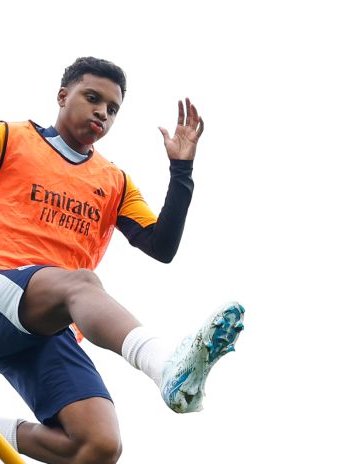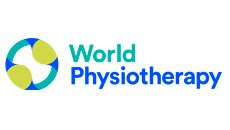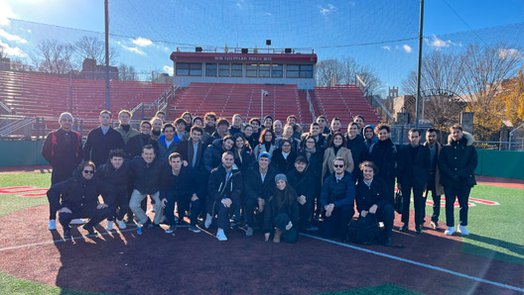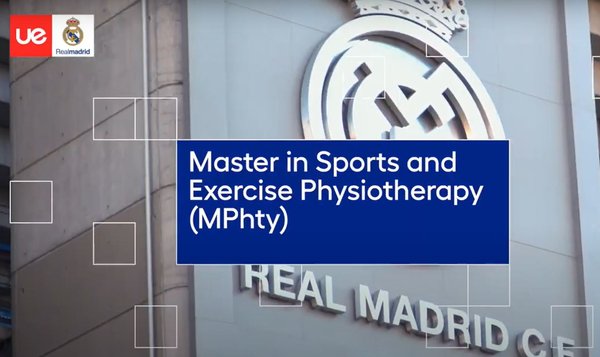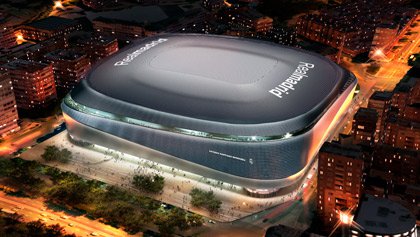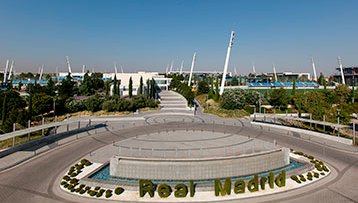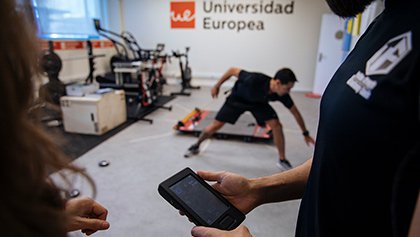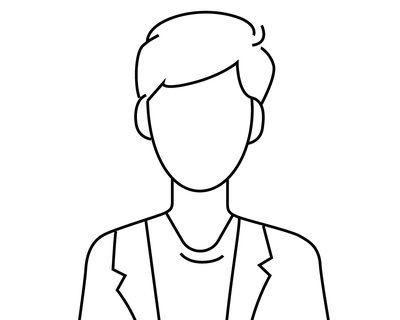Master in Sports Physiotherapy Highlights
The Master in Exercise and Sports Physiotherapy is designed to provide students with the skills and resources necessary to become sports physiotherapists and prevent and treat injuries as well as achieve rapid recoveries in injured athletes, all while being part of a multidisciplinary team. As part of the sports physiotherapy masters, students will cover many areas including injury prevention, diagnosis, functional rehabilitation, and pathology and medicine.
Our Master in Sports Physiotherapy is the first in Spain taught entirely in English and has been ranked as the best nationwide as a specialised master in physiotherapy by El Mundo Newspaper.
View the spanish version of the Master: Máster Universitario en Fisioterapia Deportiva
Private degree issued by Universidad Europea de Madrid
Classes in English | Villaviciosa de Odón | Start: 17 oct. 2025 | Faculty of Medicine, Health and Sport | Escuela Universitaria Real Madrid Universidad Europea |
1
100% taught in English in Spain.
12
More than 12 professionals from the Real Madrid medical service teach classes in the master's degree.
1st
As a specialised master in the area of physiotherapy. The only institution in Spain recognized by the World Confederation for Physical Therapy (WCPT).
Facilities
Study plan
Module I The athlete’s physiological environment: training
- Physiological Basis of Sports Training
- Training Programming
Module II Multidisciplinaries Sciences
- Sports Nutrition
- Sport Psychology
- Sports Emergencies
- Sports Podiatry
- Sports Medicine
Module III Prevention and planning the return to play after a sports injury
- Epidemiology and prevalence of sports injuries
- Individual functional analysis of athletes
- Program for sports injuries according to changes in structure and functional ability
- Return to Play models
- Functional rehabilitation, motor control and physical-sport readaptation
Module IV Diagnosis and esencials methods of sports physiotherapy
- Conservative approach to myofascial pain.
- Myofascial pain in sport: clinical diagnosis an conservative approach
- Chronic pain in sport
- Functional Taping
- Kinesio Taping
- Electrotherapy
- Therapeutic Exercise and mobility
Module V Diagnosis and methods of sports physiotherapy
- Hydrotherapy
- Manual sports therapy.
- Myofascial Release
- Rehabilitative Ultrasound Imaging
- Neuroscience and pain
- Tendinopathy approach
- Global Active Stretching
Module VI Master's Thesis
Methodology: the Master's Degree in Sports Physiotherapy
In the Master’s Degree in Sports Physiotherapy, you will develop ‘learning by living’ skills with the most advanced techniques that help you with the diagnosis and protocol/emergency assistance for athletes, all while working within a multidisciplinary team.
The different modules in the master's degree follow the guidelines set forth by the National Athletic Trainers Association for the certification of the functions of a physiotherapist specialising in sport:
- Evidence-based practice
- Prevention and awareness of health in sport
- Evaluation through clinical reasoning and functional diagnosis.
- Immediate care in emergency situations in sport.
- Rehabilitation, functional recovery and physical-sports retraining, setting short-, medium- and long-term goals that can be measured objectively.
- Programme for discharge and final evaluation of the athlete's injury.
- Organisation and administration: athlete’s clinical data records.
Certifications
As part of our commitment to specialised, cutting-edge training, the master incorporates certifications from the Real Madrid Graduate School – Universidad Europea. These additional qualifications enable students to develop the practical skills highly sought after in sports physiotherapy)
Therapeutic pilates
Therapeutic Pilates is a discipline combining exercises designed to improve posture, balance, and muscle strength. It is effective because it involves dynamic, controlled stretching of specific muscle groups. There are two main types of practice: Mat Pilates, where exercises are performed on a mat using bodyweight for resistance; and Pilates with Machines, which uses apparatus such as the Reformer, Cadillac or Barrels to offer different types of resistance and support.
EPTE (Percutaneous Therapeutic Electrolysis
Is an innovative technique that uses microcurrents applied via an ultrasound-guided acupuncture needle. This technique enables physiotherapists to access injured soft tissue precisely, thus stimulating its natural regeneration process. The application of a galvanic current together with the mechanical stimulation of the needle generates a controlled physical reaction in the tendon, providing a therapeutic effect in the field of physiotherapy.
Dry needling
Dry needling is an invasive technique involving the insertion of a sterile needle into the affected area without the application of any substance, hence the name. Unlike electropuncture, this technique does not use an electric current. The main objective is to deactivate myofascial trigger points, thereby contributing to pain relief and reducing muscle tension.
Recovery of sports injuries in an aquatic enviroment
This involves planning and supervising exercises performed in water to take advantage of its physical properties for therapeutic purposes. It is based on two fundamental principles: Mechanical principles, which include hydrostatic, hydrodynamic and hydrokinetic factors. Flotation enables the tissues to be worked with less load and tension, movement to be facilitated or resisted within the water, and pressurised water to be used to achieve effects similar to massage therapy. Thermal principles are applied through the use of hot water. These help to reduce pain, promote vasodilation and generate sedative and antispasmodic effects, improving tissue elasticity and reducing joint stiffness.
Employability
Professional opportunities in sports physioteraphy
Sports physiotherapy is one of many specialties in physiotherapy, focused on the rehabilitation, care and injury prevention of amateur and professional athletes. It also aims to establish guidelines for all patients who engage in physical activity and want to carry out their activity safely.
After completing the Master in Sports Physiotherapy, graduates will be qualified to work—either for a company or as a freelancer—in any sport-related organisation. They will also be prepared to develop and launch their own entrepreneurship projects.
Admissions
Start your future at Universidad Europea
You can become a student at Universidad Europea in three easy steps.
1
Admission exams
Start your admission process by calling +34 911128850 or request information and our advisors will contact you.
2
Place reservation
Once you have been admitted, secure your place by paying the reservation fee.
3
Enrollment
Submit the required documents to formalise your enrollment.
Scholarships and financial aid
We want to help you. If you want to study at the Universidad Europea, you will have at your disposal a wide selection of own and official scholarships.
Credit recognition and transfers
You don’t have to stick with something you don’t like. That’s why we’ve designed specific plans for credit recognition and transfers.
Request your online credit recognition review, transfer your academic file and start studying at Universidad Europea.
New student profile and access to the degree
The Master’s Degree in Sports Physiotherapy is aimed at those with a bachelor’s or certification in Physiotherapy who are interested in sharpening their knowledge of physiotherapy, honing in on injury prevention, rehabilitation and recovery for athletes of all levels.
Prerequisites
In order to enrol in this programme, the student is required by law, in accordance with the provisions set forth in Royal Decree 861/2010, To possess an official Spanish undergraduate degree, or otherwise a certification issued by a higher education institution belonging to another State within the European Higher Education Area that facilitates access to master’s degrees.
To possess a degree in accordance with educational systems outside the European Higher Education Area, without the need to get said degree ‘homologated’, as long as the University verifies that the student possesses a level of training equivalent to the corresponding official Spanish university degree, and that they are qualified to pursue a master’s degree in the country of origin. Access to the programme by this means will not imply, under any circumstance, the ‘homologation’ of the previous degree that the interested party possesses, nor its recognition for purposes other than enrolling in master’s degree courses.
Admissions process
The admissions process for programmes offered through the Escuela Universitaria Real Madrid – Universidad Europea can be done at any time of the year. However, whether or not you can enrol on a specific master’s programme depends on if there are open spots in the intake for that academic year. It also depends on the start dates of said course.
For a personalised consultation, visit one of our two university campuses (Alcobendas or Villaviciosa de Odón), or contact us by phone (+34) 91 112 88 50 or at the following email: Escuelauniversitariarealmadrid@universidadeuropea.es.
Before enrolling for the first time at the Escuela Universitaria Real Madrid – Universidad Europea, students will receive all the necessary information about the admissions and enrolment process, the programme’s study plan, academic fees and financial aid. This info is found in the informational material for each degree, the admissions regulations and the Master’s Teaching Guide. It’s also available on Universidad Europea’s website.
The stages of the admissions process are as follows:
- Personalised consultation.
- Submission of application and documentation to evaluate the candidate’s profile.
- Profile evaluation and interview.
- Confirmation of admission.
- Formalisation of place reservation and registration.
Once the candidate has had a consultation and has provided the required documentation, the postgraduate Admissions Team will request they take the corresponding entrance exams, as well as have a personal interview with the director of the programme or with a member of the Admissions Committee.
The admissions process does not involve any cost for the candidate or any commitment until the place reservation has been formalised.
Once the entry requirements have been met and their suitability for the programme has been evaluated, the student will be admitted to the programme. Their suitability is determined by their academic record, professional experience in the field in question, language skills accredited by official bodies, specific complementary training received, and other merits that are assessed at the discretion of the programme’s directors.
The Escuela Universitaria Real Madrid – Universidad Europea reserves the right not to teach a master’s degree, or to push back its start date, if the minimum number of students required for the programme is not reached. The School can also modify the timetable or teaching staff if needs be for organisational reasons. Likewise, it reserves the right to make changes in the location and Campus where the programme is taught.
Credit recognition and centre transfers
To facilitate the mobility of students both inside and outside of Spain, the University, in accordance with its internal regulations and current legislation, will assess the credits that can be transferred and recognised on the student’s academic record and official academic documents, as well as those related to any official studies completed by the student.
For these purposes, the transfer of credits implies that the official academic documents accrediting the studies completed by the student, will include the total number of credits obtained in official, previously completed studies at this or another university which have not been put towards the possession of an official degree.
Likewise, the recognition of credits implies the University’s acceptance of credits that, having been obtained by the student in official studies—at this or another university—may be counted for the purpose of obtaining an official degree.
In accordance with current regulations, the student’s previous university degrees and accredited professional work experience may also be recognised in the form of credits, and may count towards their obtaining of an official degree, provided that said experience is related to the competencies inherent to said degree, with a maximum of 15% of the credits that make up the study plan. In no circumstance may the final master’s thesis be recognised.
All credits obtained by the student in official classes taken at any university—credits that have been transferred, recognised and passed in order to obtain the corresponding degree—will be included in the student’s academic record and reflected in the European Diploma Supplement.
To determine if these can be recognised, the University’s postgraduate commission will assess the student’s record, the official qualifications they can contribute, their previous university degrees and/or professional experience, and, in accordance with the programme and its specific, relevant subjects, the student’s competencies, work and dedication."
If you’d like us to provide you with a personalised credit recognition plan quickly, free and without any commitment, you can do so here.
Faculty
Our teaching staff
Program Directors
- Mr. Sergio Vázquez González
Co-director of Premium Madrid Health and Rehabilitation Center. Works as a physiotherapist for members of the National Junior Swimming and Synchronized Swimming Team at the Premium Madrid Health and Rehabilitation Center, as well as with professional athletes, amateurs and lower categories from a variety of different sports: indoor football, football, tennis, mountaineering, volleyball and running. Physiotherapist for the Fuenlabrada ACB Basketball Club. - Álvaro Solano Tavira PhD
Head of physiotherapy for the Real Madrid C. F. reserve team - D. Álvaro Guerrero Cabezudo
Co-director of Premium Madrid Health and Rehabilitation Center. Works as personal physiotherapist for professionals athletes - Diego Miñambres Martín PhD
Head of medical multidisciplinary center and director of the innovation and researcher center of Premium Madrid.
Teachers
- Mikel Aramberri PhD
Medical Staff at del Real Madrid C. F. - Noelia Bonfanti PhD
Sports Nutrition Expert. Nutrition Consultant at Red Bull Athletic Performance Center. - Daniel Martín Vera PhD
EPTE© - Electrólisis Percutánea Terapéutica Professor & Researcher. Associated profesor at Universidad Europea de Madrid. Specialist in Cervico-Cranio-Mandibular (TMJ) disorders and Craniosacral Therapy. - Marc Van Züillen
Physiotherapist at Fisioterapia Alcobendas. Fascia Research Society member. - Andrej Pilat PhD
Physiotherapist and specialist in manual therapy and creator of the myofascial induction approach. - Sergio Toba
Physiotherapist and osteopath specialized in profesional basketball. - Jaime Almazán PhD
Professor at Universidad Europea de Madrid - Francisco Gámez PhD
Physiotherapist at Málaga Club de Fútbol. Alumni Máster Universitario en Fisioterapia Deportiva EURM - Michal Novotny
High performance athletes physiotherapist. - Alejandro Luque PhD
Specialist in Sports Physiotherapist. Head of the Department of Physiotherapy. University of Malaga,Spain. Researcher in chronic MSK pain - Ángel Basas PhD
Physiotherapy Manager at Real Federación Española de Atletismo y Gimnasia. Member at the Scientific-Medican research comission at Olympic Spanish Comittee (COE)
Frequently Asked Questions
How do I become a sports physiotherapist?
Sports physiotherapy is a branch of physiotherapy that focuses on athletes and sports people. Within a sports team or club, the physiotherapist plays a key role both in preparation and recovery from games, as well as injury prevention.
To become a sports physiotherapist requires a number of elements – and more that just a passion for sport. Because physiotherapists are dealing with the biomechanics of the human body, it is essential to study a science related degree – either a Degree in Physiotherapy or something related.
The Masters in Exercise and Sports Physiotherapy at Real Madrid Graduate School – Universidad Europea allows you to specialise within the sporting context. Our programme, which lasts for 9 months, covers the key aspects that will allow you to enjoy a successful carrer in professional sport. Subjects include:
- Prevention and planning the Return to Play after a sports injury
- Functional rehabilitation, motor control and physical-sport readaptation
- Pathology and medicine for treating sports injuries
- Sports Nutrition, Sports Psychology and Sports Emergencies
What can you do with a sports physiotherapy degree?
A sports physiotherapy master’s degree allows you to specialise as a physiotherapist within the sports context.
Graduates from our Master’s in Exercise and Sports Physiotherapy have gone on to enjoy successful careers both in Spain and abroad with various sports clubs and organisations. Some choose to set up their own practice while others are employed within a club.
At Real Madrid Graduate School – Unversidad Europea, we have a focus on practical learning. Should you choose this programme, you will have access to some of the finest university facilities on offer in Spain, including a state-of-the-art sports centre which includes Human Performances Research Labs and specialist phyiostherapy rooms equipped with the latest technology.
What qualities do you need to be a sports physiotherapist?
Sports physiotherapists are key members of a sports club who help athletes overcome and recover from injuries. As well as providing treatment, they also need to come up with plans for each patient and ensure those plans are followed for the best chance of recovery.
As well as a good academic record and a qualifitcation in physiotherapy or a science related field, there are also certain qualities a sports physio should possess. These include:
- Excellent communication skills.
- The ability to explain clearly to patients how to carry out exercises.
- To be good with their hands to carry out some treatments.
- Motivational skills to encourage clients to persevere with treatment and therapy.
- Patience, tact and empathy, to treat people in pain or frustrated by their injuries.
- Good interpersonal skills to work with clients and understand their needs.
- To be able to inspire confidence and trust in clients and colleagues.
- To be able to work well in a team.
Where can I study sports physiotherapy?
Real Madrid Graduate School – Universidad Europea offers one of the best Master’s in Sports Physiotherapy programmes in Spain. Thanks to our collaboration with Real Madrid, you will have access to the club’s facilities – both the Santiago Bernabeu and Real Madrid Sport City in Valdebabas – to see what goes on behind the scenes at one of the world’s most successful football clubs.
In addition, if you choose this programme, you will be able to attend live events and conferences, such as White Week – a week-long event attended by industry experts, athletes and directors of Real Madrid who all share their expertise and experience. Our faculty is also made up of professionals and leading experts, such as the head physio at Real Madrid’s reserve team.
With a focus on practical based learning, Universidad Europea offers you some top level facilities including Human Performance Research Labs, a state of the art sports center, and physio rooms with all the latest technology.
